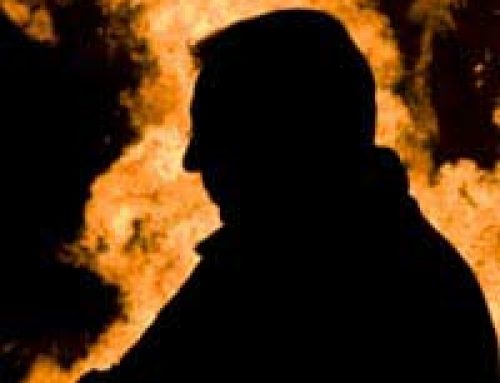 It is impossible to overemphasise the importance of making sure that your home has smoke detectors and alarms fitted. Remember, in the majority of house fires where families have died, almost all deaths occurred as a result of smoke inhalation, not death from the fire itself. Adults and children asleep in bed are more likely to inhale deadly smoke fumes and die before they are even aware that their home is on fire. A detector and alarm will alert everyone to the fire, and give them valuable time to evacuate before the smoke and fire take hold.
It is impossible to overemphasise the importance of making sure that your home has smoke detectors and alarms fitted. Remember, in the majority of house fires where families have died, almost all deaths occurred as a result of smoke inhalation, not death from the fire itself. Adults and children asleep in bed are more likely to inhale deadly smoke fumes and die before they are even aware that their home is on fire. A detector and alarm will alert everyone to the fire, and give them valuable time to evacuate before the smoke and fire take hold.
What Are The Types Of Alarm Available?
Broadly speaking, smoke alarms fall into two distinct categories –
- Ionisation Alarms – these alarms detect all types of smoke, but they are most effective for fires such as chip fan blazes. The detector contains a small amount of harmless radioactive material that detects any invisible smoke particles floating in the air. When the material detects smoke particles, the alarm is activated. The ideal locations for this type of alarm are halls, landings and bedrooms.
- Optical Alarms – again these alarms detect all types of smoke, but they are effective in detecting smoke with larger particles such as that given off by burning furniture. This alarm operates by sending regular pulses of ultra-violet light to a detector. If smoke interrupts the light pulses, the detector activates an alarm. Ideal sites include living rooms.
Modern Building Regulations mean that all new properties have at least one mains-operated smoke detector and alarm fitted. If you are fitting a mains operated detector and alarm, it is worth getting one with a battery back up in case of mains failure.
Most battery alarms have a built-in ‘bleeper’ that indicates when the battery needs replacing, but all batteries should be checked at least once a month, and replaced at least once a year in all cases. Some alarms have a ‘bleeper’ that advises that the alarm sensor requires cleaning. Obviously the more sophisticated an alarm system is, the more expensive it will be, but always ensure that you buy the very best alarms you can afford and install them exactly as instructed by the manufacturer. If you are living in rented property, check if your landlord has responsibility for installing and maintaining smoke detectors and alarms. Check the terms of your tenancy agreement, and make sure everyone in the building is aware of the need for installation and maintenance of detectors and alarms. If your landlord is not responsible, then you are! Make sure everyone in your building contributes to the installation and maintenance of detectors and alarms, it’s your lives that are at risk.
Escape Plan
It’s pointless installing and maintaining smoke detectors and alarms unless you have a proper Escape Plan, which is known to everyone in the house. You must ensure that everyone knows that the sounding of the alarm means leaving the house immediately, not stopping to collect anything at all – seconds are vital when toxic fumes are building up. Make sure the route to your front and back doors are clear of obstruction and everyone knows where the keys are kept – which should be near to the doors, but safely out of sight and reach of burglars. If your windows have security locks, again ensure that everyone knows where the keys are, and how to operate the locks quickly and easily.
What ever the cost of buying and maintaining smoke detectors and alarms, it’s always going to be hundreds of times cheaper than the cost of replacing everything in your home, not forgetting that some things, like your family, can never be replaced.





Leave A Comment